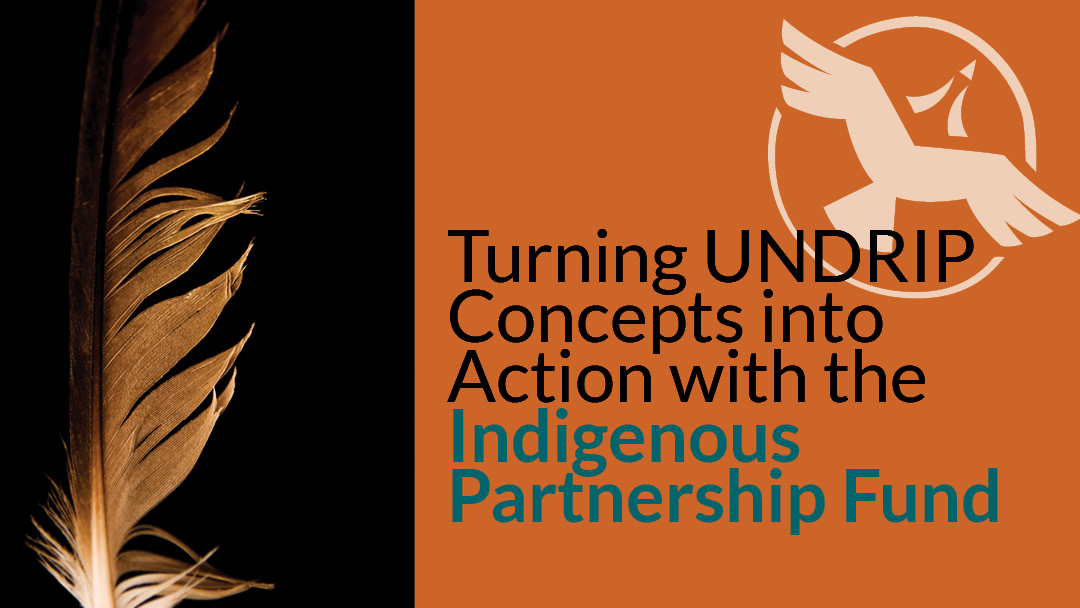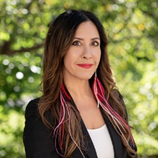
The United Nations Declaration on the Rights of Indigenous Peoples (UNDRIP) Act and Canada’s Declaration Act Action Plan for implementing UNDRIP stand as a beacon for Indigenous Rights. Yet, the concepts—particularly around self-determination—seem broad and unclear to many people.
The challenge for First Nations lies in transforming these theoretical concepts into tangible tools that empower communities to leverage their own goals around self-determination. In this blog, we explore how the recently announced Indigenous Partnership Fund can be a game-changer for Indigenous communities, providing defined pathways for implementing UNDRIP and holding Canada accountable to their commitments laid out in the Declaration Act Action Plan.
Unlocking the Indigenous Partnership Fund
The Indigenous Partnership Fund, introduced by the Government of Canada, is a long-awaited funding opportunity designed to support the implementation processes outlined in the UNDRIP Action Plan. Indigenous communities can now apply for up to $50,000 to support UNDRIP implementation through activities like engagement, education, research, and policy development.
Concrete Steps Toward Self-Determination
To translate UNDRIP principles into actionable steps, consider the following approaches as an initial stride toward greater self-determination:
Learn More About the Action Plan and Hold Canada Accountable to Their Commitments:
The Government of Canada’s UN Declaration Act (2021) required the establishment of an Action Plan to implement UNDRIP. After a period of gathering input from Indigenous Nations, the final Action Plan was released in June 2023.
Communities can apply for the Indigenous Partnership Funding to ensure that UNDRIP is implemented in ways that support your Nation’s self-determination and to ensure that Canada keeps its commitments laid out in the Action Plan.
Internal Community Governance Development:
Harness the funding to develop governance-level policies and protocols, strategically prioritizing issues that are most pressing to your community. This can lay the foundation for a comprehensive approach to internal policy development.
Policies could span internal governance, land and resource management, education, health and wellness, and cultural preservation and language.
Protocols might include Free, Prior, and Informed Consent (FPIC), Ownership, Control, Access, and Possession (OCAP®), engagement and consultation, Traditional Knowledge and ceremonial practices, land use and harvesting, and data management.
Community Engagement Processes:
Allocate funds for community engagement initiatives such as workshops, roundtables, and community-wide discussions. These processes can be instrumental in strategic planning at the community-wide level, bringing community members together to discuss priorities and what matters most to them.
Key topics for community engagement can include education about the UN Declaration Act and the Declaration Act Action Plan, gathering information about community priorities around UNDRIP principles, and sessions to inform your own community policy and protocol development.
Shared Value Solutions’ Comprehensive Support for UNDRIP Implementation
At SVS, we are committed to supporting our clients in achieving goals related to self-determination. Here’s how we can support your community with UNDRIP implementation, as outlined in the Indigenous Partnership Fund eligible activities list:
- Community Engagement Support
- We excel at designing and implementing interactive approaches to community engagement.
- We tailor our approach based on your community’s needs.
- We design methodology to capture the information that is most important to achieving your goals and objectives.
- Education and Capacity Building
- We can work with your community to understand what members are most interested in learning about and develop educational materials or presentations depending on this need.
- We can work with your community to build internal capacity to better monitor the implementation of UNDRIP in your community.
- We can host and facilitate a speaker series for your community with experts in the field to present various topics related to UNDRIP.
- Internal Community Governance Development
- We can support your community in prioritizing goals for law, protocol, and policy development related to governance, land use, Traditional Knowledge, data management and protection, and more.
- We can support your community in developing a written framework for community and governance law, protocol, and policy development.
Conclusion
Navigating the principles articulated in UNDRIP, specifically around Indigenous Rights, including the right to self-determination, may seem unclear, but we believe that the Indigenous Partnership Fund offers a strategic path forward for your community. The team at SVS would be honoured to help you get there.
The Indigenous Partnership Fund presents a unique opportunity for your community to take the lead in implementing the Declaration Act Action Plan by providing resources for initiatives aligned with community priorities. We believe that the Indigenous Partnership Fund offers a starting point to impact positive change. So, after reading this, where does your community want to start?
The funding application process is now open until January 30, 2024. If you want help brainstorming how your community can best use this funding, or if you want help with the application process, we’re here to help.
Contact jessica.steiner@sharedvaluesolutions for more information.
Visit https://www.justice.gc.ca/eng/fund-fina/ipf-fpa/index.html for more information.
About the Authors:

|
Jessica Steiner, Senior Consultant, Shared Value Solutions Ltd.
Driven by a passion for Indigenous rights and the preservation of communities’ cultural ties to sustainable lands and resources, Jessica is committed to advancing Indigenous self-determination. Jessica specializes in Indigenous engagement and consultation for major infrastructure development projects predominantly in Canada’s energy and mining sectors. With a wealth of experience spanning over a decade in conducting Indigenous Knowledge and Land Use Studies, Jessica is highly skilled and proficient in community-based research, GIS and mapping, data management, and crafting comprehensive reports. Her work helps protect the Aboriginal and Treaty Rights of her clients as they relate to lands, resources, and culture. More recently, Jessica has directed her expertise towards supporting Indigenous communities in advancing their goals and objectives, in relation to implementing the United Nations Declaration on the Rights of Indigenous People (UNDRIP).
|

|
Jessica Keeshig-Martin, Senior Consultant, Shared Value Solutions Ltd.
Jessica is motivated by the Indigenous Peoples’ movement toward self-determination. Her goal is to make contributions to this journey through the roles she takes on in her personal and professional ventures. She is deeply connected to the Nation, lands, and waters of her Anishnaabe ancestry and is always mindful of Those that are yet to come. After graduating with a Bachelor of Arts degree with a major in sociology and Indigenous studies, Jessica began a deepened engagement with Indigenous communities through her work for the Chiefs of Ontario in the Justice Department. She went on to work for her home Nation as Nuclear File Coordinator and Education, Language and Culture Coordinator as well as for the Independent First Nations as Education Coordinator and the Canadian Roots Exchange as a Facilitator. Jessica’s knowledge and perspective has been profoundly shaped by the teachings of Elders and Knowledge Keepers from her home community, Anishnaabe territory, and Turtle Island.
|
 |
Renée Pelletier, Senior Partner, Olthuis, Kleer, Townshend LLP
Renée Pelletier is a Partner at OKT. Renée is of Maliseet descent and grew up in Fall River, Nova Scotia. Her practice includes work on Aboriginal and treaty rights litigation and specific claims. She has litigated judicial review applications and appeared before various levels of courts on motions, trials and appeals. Renée was cited by the Supreme Court of Canada in the high-profile case R. v. Ipeelee, 2012 SCC 13. Renée regularly advises and represents her Indigenous clients on consultation matters, regulatory and environmental matters, reserve land management and impacts and benefits agreements. Renée is especially passionate about assisting her Indigenous clients in achieving greater self-determination. She also strives to incorporate the legal traditions of her Indigenous clients into the work she does on their behalf. Renée has also served as a member of the Independent Federal Environmental Assessment Expert Review Panel. The Panel engaged Canadians and Indigenous peoples and provided recommendations to the Government of Canada on reforms to federal environmental assessment processes. |
